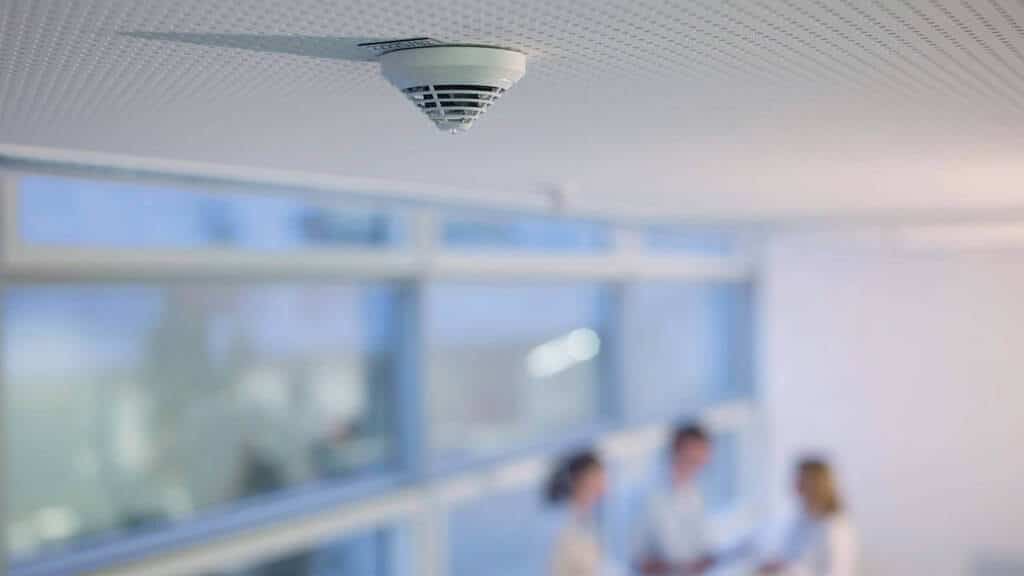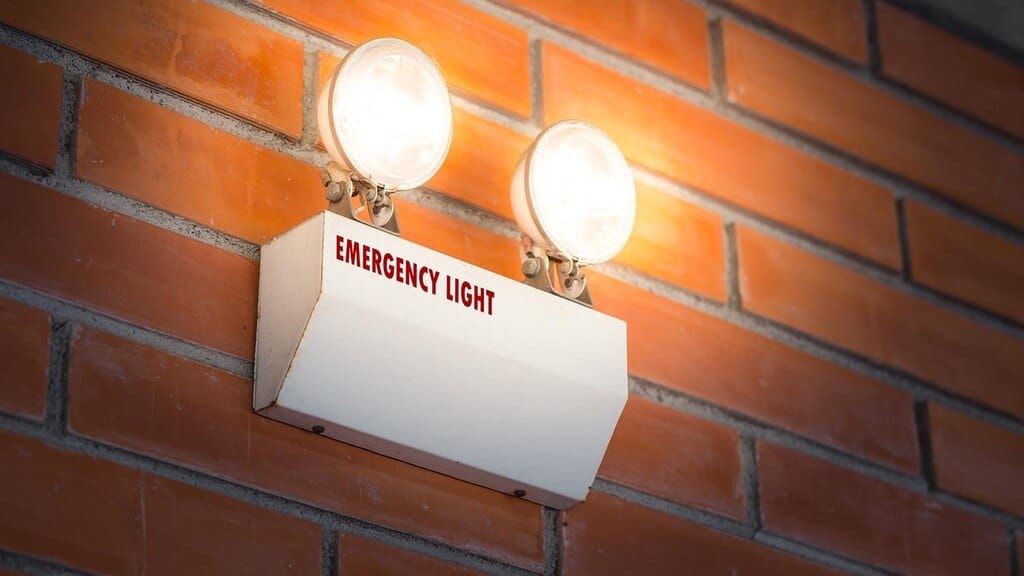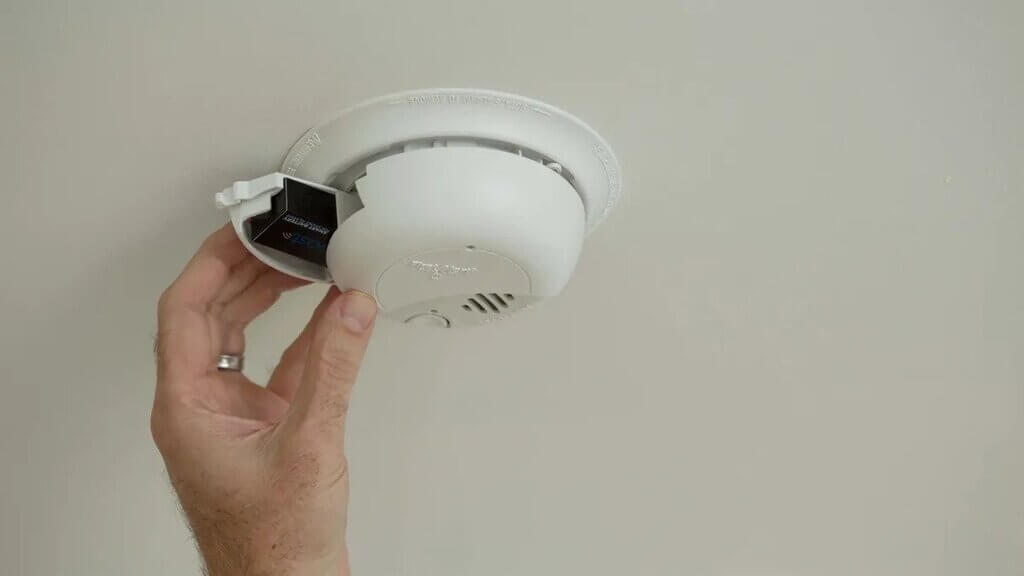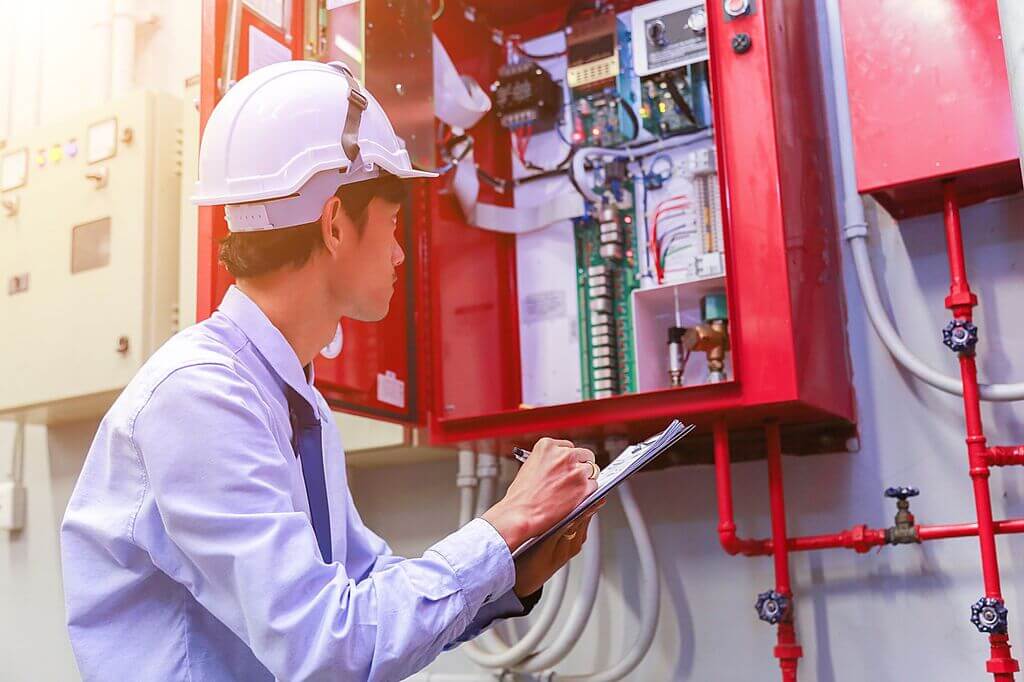As a building owner or manager in a busy, commercial city, safety should be one of your top priorities. Not only is it the law to provide appropriate fire prevention measures and emergency exits, but it also helps to protect both your employees and visitors from harm.
In addition to preventing accidents and injuries, proper safety measures can also protect your business from costly lawsuits. Fire alarm systems, sprinklers, and well-maintained emergency exits can save lives in case of an emergency.
Regular inspections and maintenance of equipment such as elevators and escalators can prevent malfunctions that may lead to injury. Implementing a clear evacuation plan can ensure that everyone knows what to do in the event of an emergency. By prioritising safety, you can create a safe environment for all who enter your building. Here are five key safety considerations to tick off:
Fire and Smoke Alarms

The fire alarm is one of the most important safety measures in any commercial building, and all inner city buildings should have them installed by a licensed professional. Fires can spread quickly, causing devastating damage and even loss of life.
A fire alarm alerts occupants of a fire early on, giving them time to evacuate the building before it becomes dangerous. Smoke alarms are also crucial, as they can detect fire before it spreads, potentially saving lives and reducing property damage.
Having fire alarms and smoke alarms installed by a licensed professional ensures that they are placed in the proper locations and are functioning properly.
Ignoring fire safety measures can lead to disastrous consequences for both people and property. So, don’t skimp on smoke and fire alarm installation in your inner city commercial building – it could mean the difference between life and death.
Fire Extinguishers

The threat of fire is always present in any building, but it can be even more dangerous in densely packed inner city areas. The close proximity of neighbouring buildings means a small fire can quickly spread, causing significant damage and risking lives.
That is why it is absolutely essential for all commercial buildings in inner city areas to have functioning fire extinguishers readily available. While the first response to a fire should always be calling Triple 0, a fire extinguisher can buy precious time before help arrives and give individuals in the building a chance to safely evacuate.
Fire extinguishers also provide an important safeguard in case of faulty or malfunctioning equipment. It’s vital to have regular checks and maintenance on all fire extinguishers, as well as training for employees on how to properly use them.
In short, having accessible and properly maintained fire extinguishers is non-negotiable when it comes to safety in inner city commercial buildings.
Well-Maintained Emergency Lighting

When the power goes out, emergency lighting is essential in ensuring the safety of building occupants. Too often, buildings neglect to regularly maintain their emergency lighting systems, putting everyone at risk in the event of an outage.
With inner city buildings housing large numbers of people and potential hazards such as elevators and stairwells, it is crucial that emergency lighting be properly maintained. First, this means regularly testing all lights to ensure they are functioning appropriately. Second, batteries should be replaced at regular intervals so they do not fail during an emergency situation.
Finally, if any lights require repairs or replacements, these should be addressed as soon as possible. Maintaining a well-functioning emergency lighting system may seem like a small task, but it can mean the difference between life and death in an emergency situation.
A Working Alarm System

In inner city areas, commercial buildings can be targets for burglars and intruders. Having a reliable alarm system in place is crucial for protecting the safety of employees, customers, and property. Not only does an alarm deter potential criminals, but it also notifies authorities in the event of a break-in or emergency situation.
A well-maintained alarm system can also help prevent hazardous fires from spreading unchecked. In addition to providing peace of mind, having a functioning alarm system in a commercial building is often required by insurance policies and local ordinances. Investing in an effective alarm system is worth the cost, as it helps to protect not just physical assets, but the well-being of everyone inside the building.
Proper Maintenance

As a city landlord, one of my top priorities is ensuring the safety of all my tenants. This means regularly conducting maintenance checks and making necessary repairs to ensure structural integrity and compliance with building codes.
But proper maintenance goes beyond these legal requirements – it can also prevent accidental injuries and disasters such as fires. Regularly inspecting and maintaining electrical wiring, smoke detectors, fire extinguishers, and exits can greatly reduce the risk of fire in a building.
Keeping floors clear of tripping hazards and properly maintaining stairways can prevent falls, while regular inspections of gas lines can prevent dangerous leaks. Implementing a rigorous maintenance schedule may require extra effort and expense now, but it will ultimately create a safer environment for everyone in the building.
Proper maintenance is not only legally required – it should also be considered an essential component of safe living for all inner city commercial buildings. As anyone in the construction industry knows, building regulations can vary widely from region to region. It can be tricky for builders and property developers to keep track of all the different legal requirements.
Luckily, there are industry bodies in place to provide guidance and ensure compliance with regulations. In Australia, the state building authority and the ABCB (Australian Building Codes Board) both develop important regulations that must be followed.
If a builder or property developer is unsure about any aspect of their project, they should always check with these industry bodies to ensure they are meeting all necessary requirements.
Though it may be an extra step in the building process, following these regulations ensures safety for all future inhabitants of the structure. Failure to do so may result in expensive legal consequences down the road. So when in doubt, always consult with industry experts and stay up to date on current building regulations.
In case you missed:–

